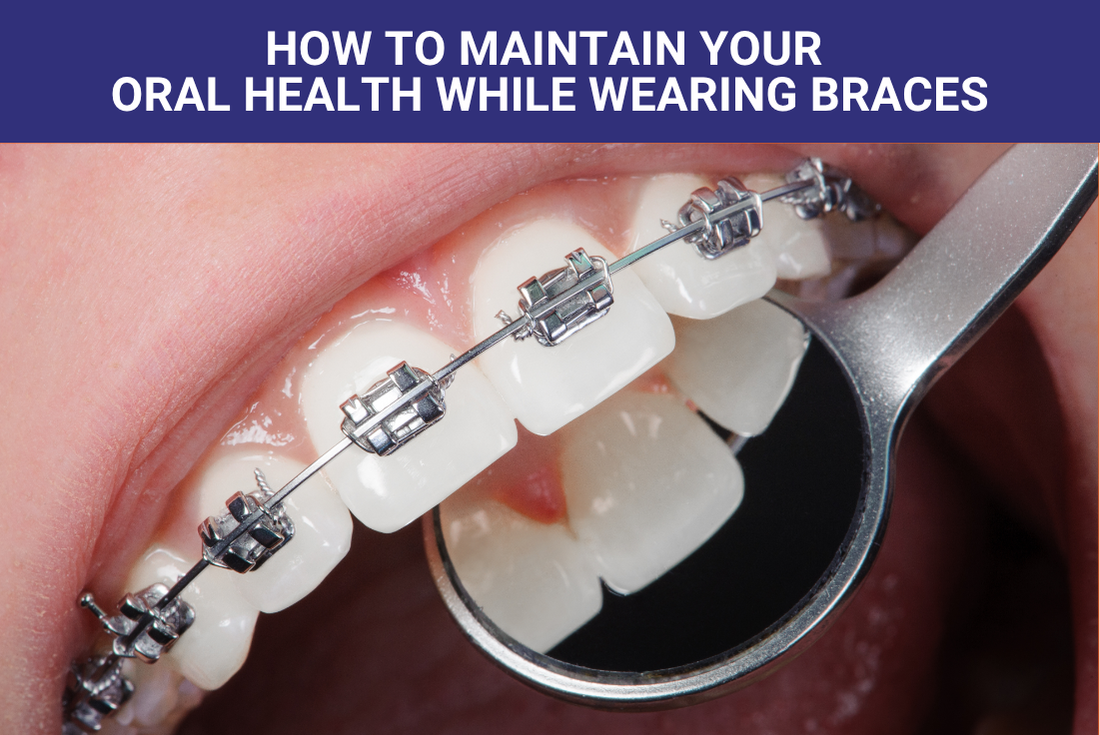
Wearing braces is a step toward a straighter, healthier smile—but it also comes with added responsibilities. Brackets, wires, and bands can trap food and plaque, increasing the risk of cavities, gum disease, and staining. That’s why maintaining excellent oral hygiene and smart eating habits is crucial throughout your orthodontic treatment.
In this blog post, we’ll provide practical tips on brushing, flossing, and dietary habits to help you protect your teeth and gums while wearing braces. Whether you’re early in your braces journey or looking for ways to improve your routine, these tips can make a big difference in your oral health.
Brushing Tips for Braces Wearers
- Brush After Every Meal
Food easily gets stuck in brackets and wires, so brushing after each meal is essential. If brushing isn’t possible, rinse with water to dislodge debris until you can brush properly. - Use an Orthodontic Toothbrush
Choose a soft-bristled brush or an electric toothbrush with a small head. Orthodontic toothbrushes are designed to clean around brackets and wires effectively. - Use the Right Technique
- Hold your brush at a 45-degree angle to the gumline.
- Brush above and below the brackets using short, circular motions.
- Don’t forget to brush your tongue and the roof of your mouth.
- Brush for 2 Full Minutes
Time your brushing to ensure thorough coverage. Use a timer or play a short song to keep track.
Flossing Tips for Braces Wearers
- Floss Once a Day (At Minimum)
Flossing is more challenging with braces, but it’s just as important—if not more so. - Use Floss Threaders or Orthodontic Floss Picks
These tools help you maneuver dental floss under the wires. It may take extra time at first, but the process becomes easier with practice. - Try a Water Flosser
A water flosser can help flush out food and plaque from hard-to-reach places. While it doesn’t replace traditional flossing, it’s a helpful supplement.
Mouthwash Matters
Rinse daily with an antimicrobial or fluoride mouthwash. This helps reduce bacteria, strengthen enamel, and prevent white spot lesions that can form around brackets.
Smart Eating Habits with Braces
Foods to Avoid:
- Sticky or chewy candy (gum, caramel)
- Hard foods (nuts, popcorn, raw carrots)
- Crunchy snacks (chips, pretzels)
- Sugary drinks and sodas
Foods to Eat with Caution:
- Slice raw fruits and vegetables thinly
- Cut corn off the cob
- Avoid biting into apples or hard bread directly
Tooth-Friendly Snacks Include:
- Yogurt
- Soft cheeses
- Cooked vegetables
- Smoothies
- Pasta and rice
Keeping sugar and acid intake low will reduce your risk of developing cavities and enamel erosion.
Don’t Skip Dental Visits
Even with braces, it’s important to visit your general dentist every 6 months for professional cleanings and checkups. These visits help catch problems early and ensure your overall oral health stays on track during treatment.
Frequently Asked Questions (FAQ)
Q: How many times a day should I brush my teeth with braces?
A: Ideally, brush after every meal and snack. At the very least, brush thoroughly in the morning and before bed.
Q: Can I use a regular toothbrush with braces?
A: Yes, but an orthodontic or electric toothbrush will make it easier to clean around brackets and wires more effectively.
Q: What should I do if food gets stuck in my braces?
A: Use an interdental brush, floss threader, or water flosser to gently remove the food. Avoid using sharp objects, which can damage your braces or gums.
Q: Why is flossing important if I’m already brushing well?
A: Brushing cleans the surfaces of your teeth, but flossing removes plaque and food between teeth and under the gumline—areas your brush can’t reach.
Q: Are there specific toothpaste or mouthwashes recommended for braces?
A: Look for fluoride toothpaste and alcohol-free, antibacterial mouthwashes. Your orthodontist or dentist can provide personalized recommendations.
Q: Can I still get cavities even though I’m wearing braces?
A: Yes. Braces increase your risk for cavities and gum disease if plaque isn’t removed regularly and thoroughly.
Contact Willis Orthodontics
If you have questions about caring for your teeth while wearing braces, or if you’re due for a cleaning or checkup, we’re here to help!
Willis Orthodontics
🌐 Website: https://smilesbywillis.com/
By following these tips and maintaining consistent dental care, you can keep your smile healthy and bright throughout your orthodontic journey—and beyond!

